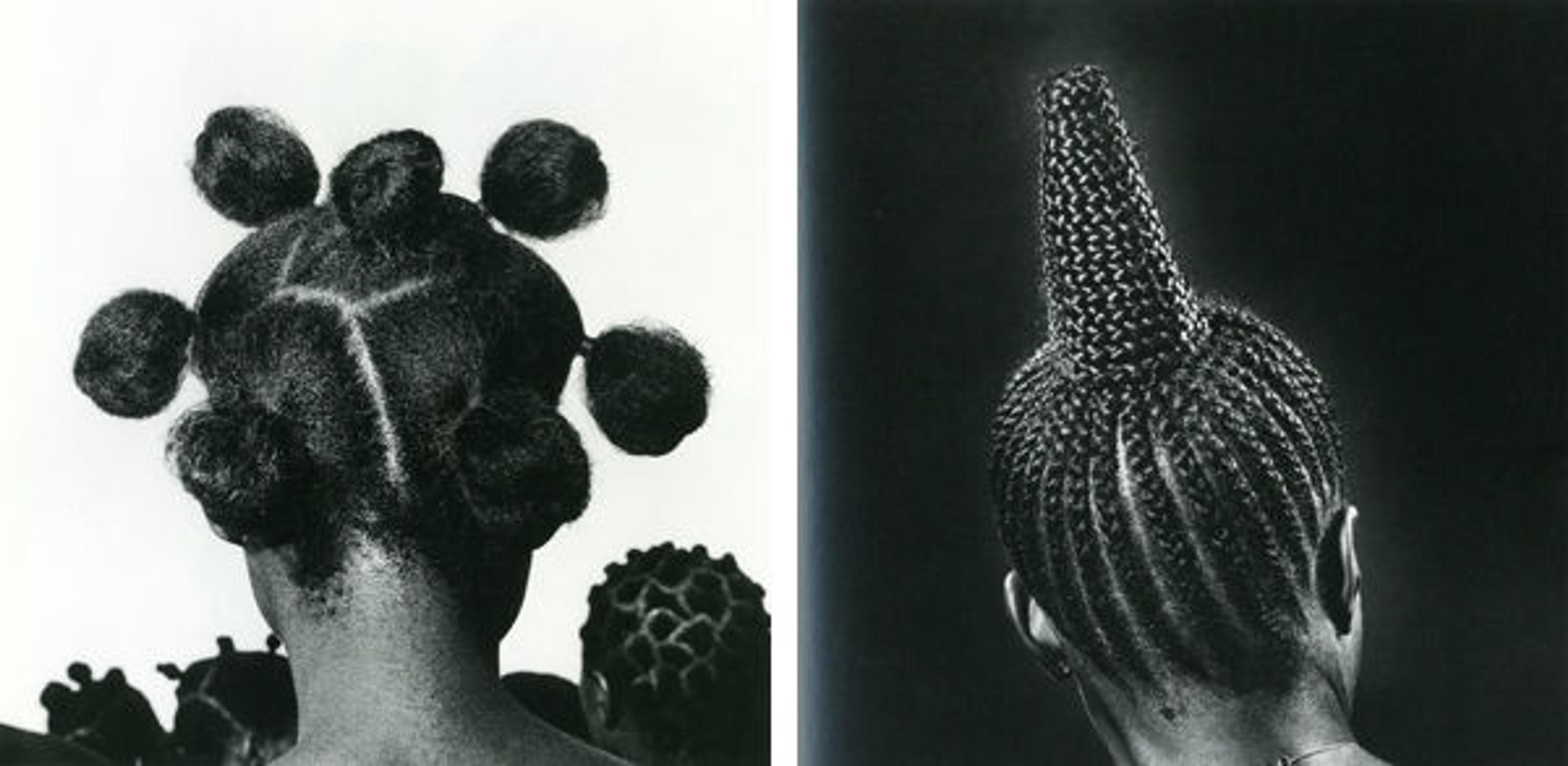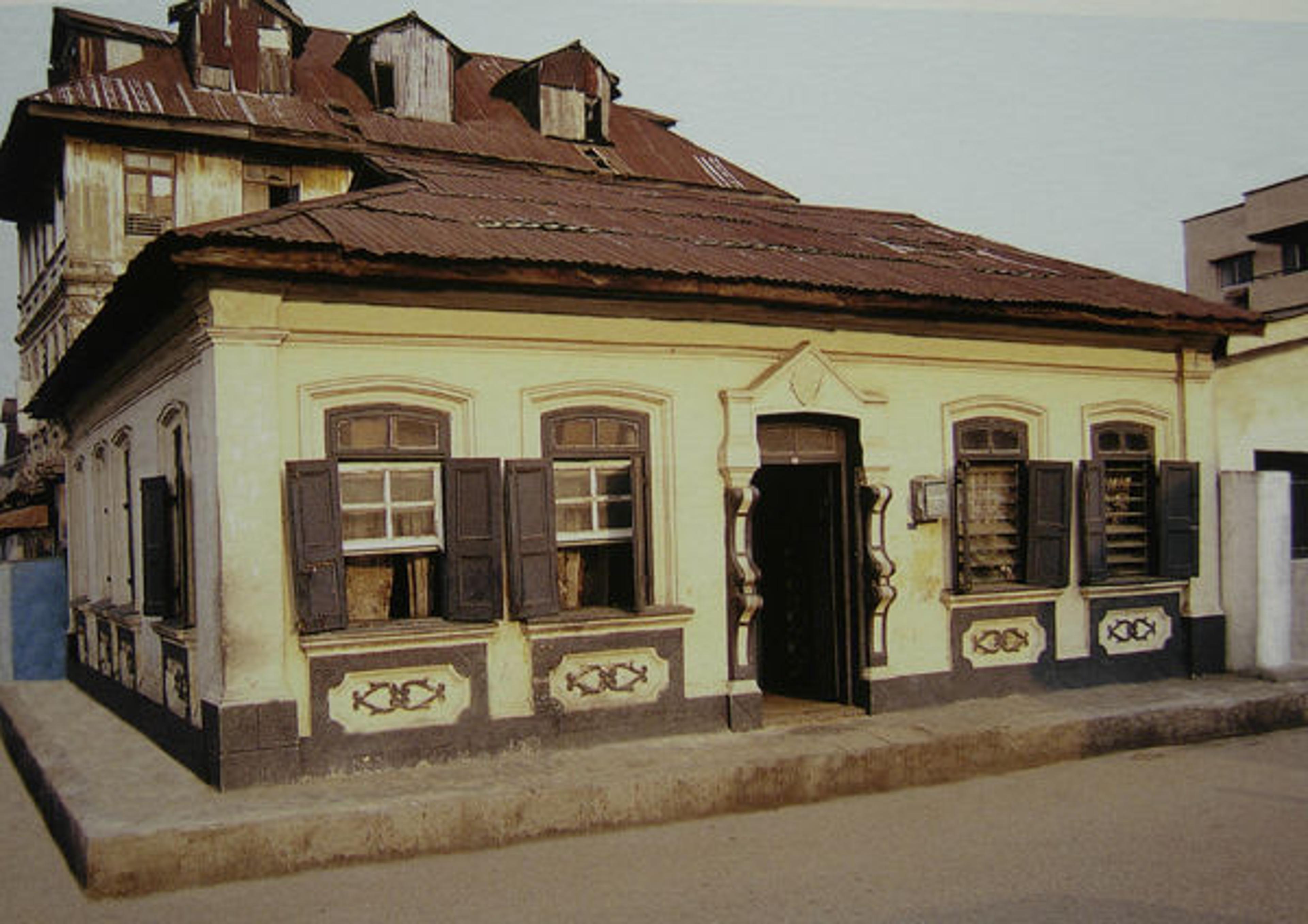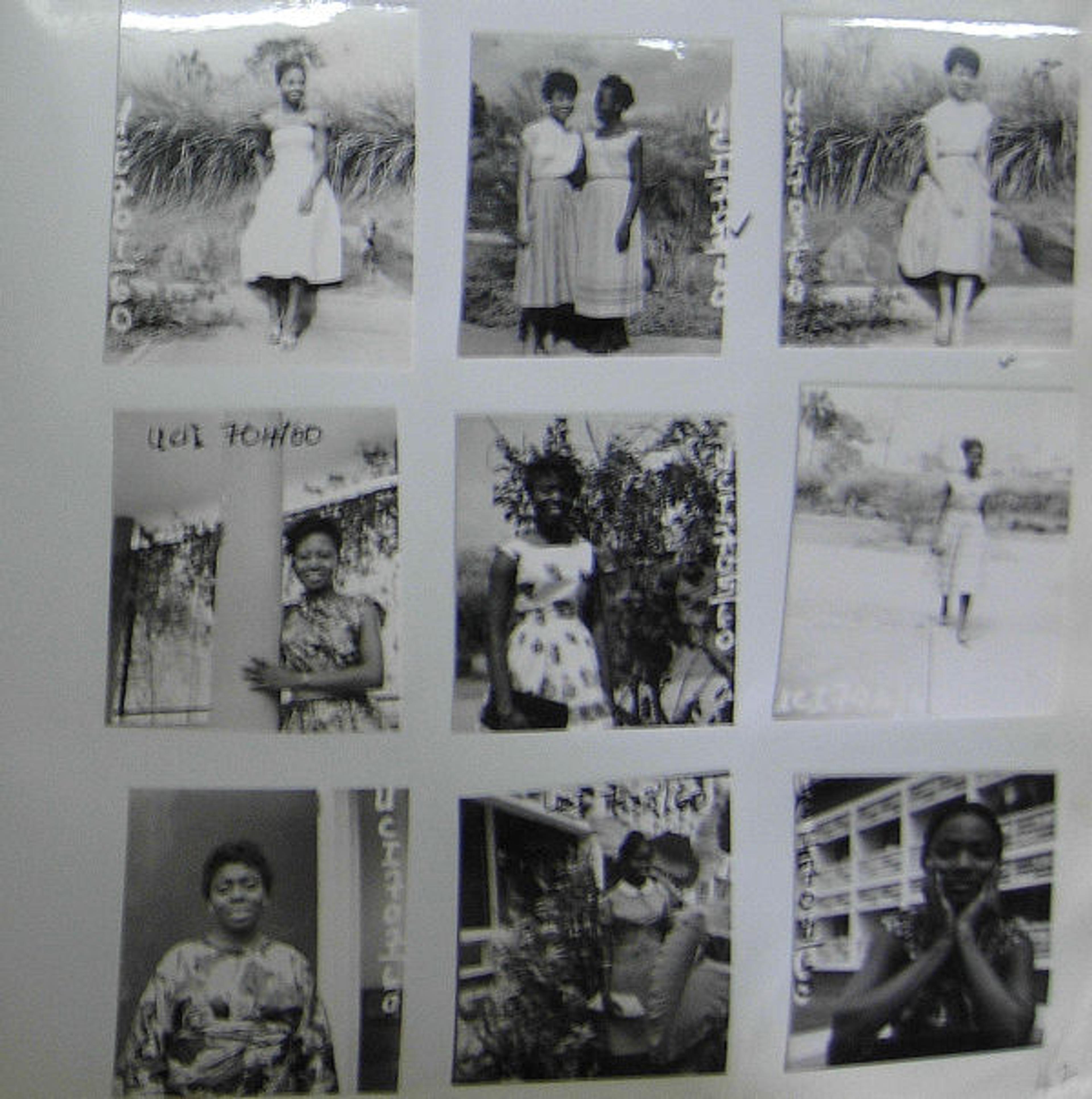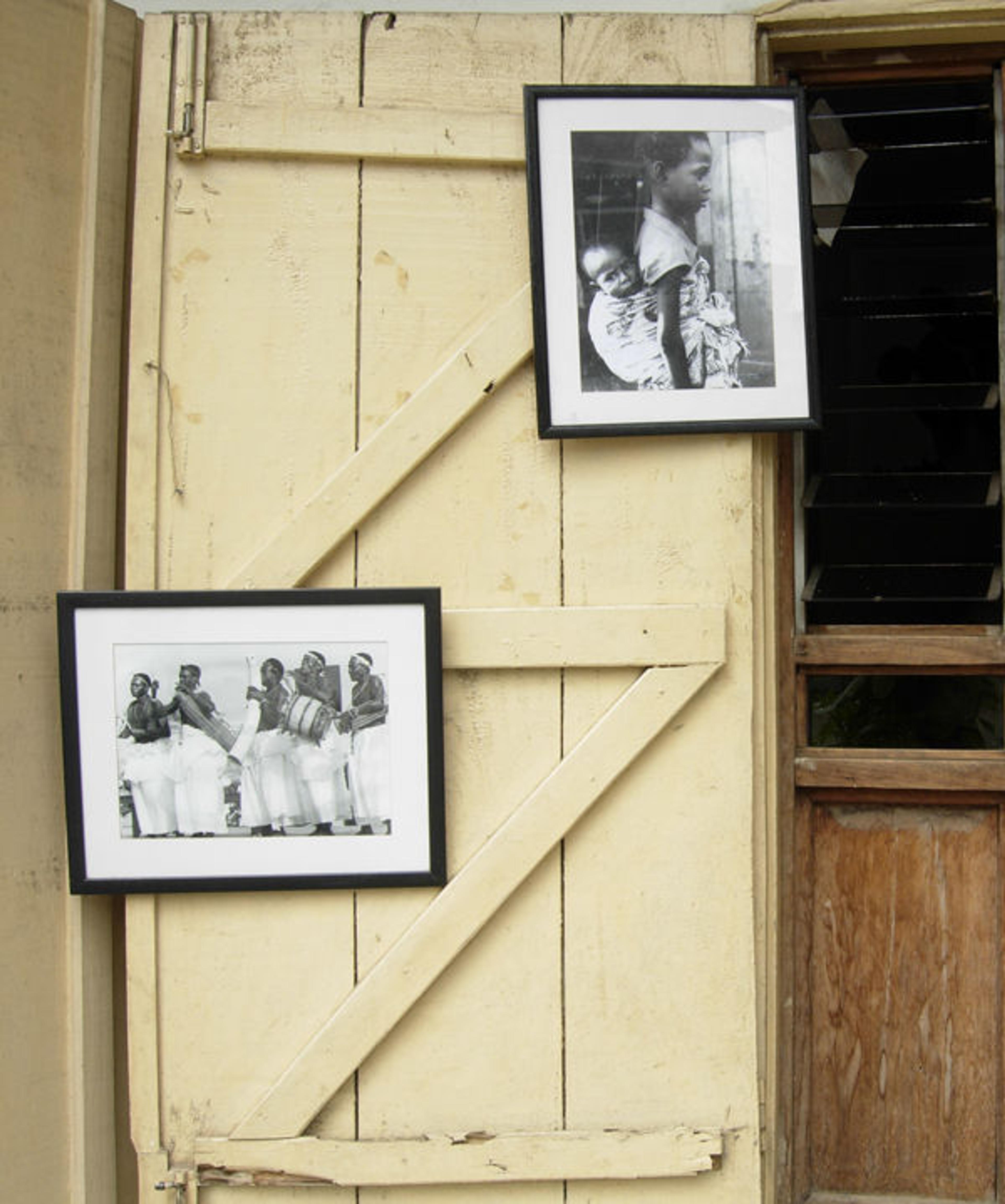A Tribute to J.D. 'Okhai Ojeikere (1930–2014)
«On February 2, J.D. 'Okhai Ojeikere, one of the greatest African photographers of the twentieth century, passed away. Over a career that spanned more than fifty years, Ojeikere exhibited internationally in major venues such as the Venice Biennial, Tate Modern, Studio Museum in Harlem, Documenta, and Fondation Cartier pour l'Art Contemporain, among others. He is represented in some of the most prestigious collections, including the Met's, which includes two photographs from his celebrated Hairstyles series.»

J.D. 'Okhai Ojeikere (Nigerian, 1930–2014). Untitled (Mkpuk Eba), 1974 (left) and Untitled (Modern Suku), 1975 (right). The Metropolitan Museum of Art, Purchase, Joseph and Ceil Mazer Foundation Inc. Gift, 2010 (2010.167, 2010.168)
Ojeikere was a forerunner of the practice of documentary photography in Nigeria. Beginning in the 1950s, he produced an impressive portfolio of two thousand negatives documenting the ways women styled their hair into monumental headdresses. His formal vocabulary is immediately recognizable: lack of backdrops or props, elegant female sitters, elaborate coiffures, soft lighting, immaculate black-and-white printing. In Ojeikere's hands, photography became a means to record the transient creativity that articulated Nigerian social and cultural life.
The photographer's appreciation for Nigerian heritage did not remain confined to his studio; rather, it reached and encompassed the urban landscape. For more than seven years in the 1990s, he documented Lagos's architectural traditions. The 1999 catalogue Eko: Landmarks of Lagos published some of these works that sought to preserve the memory of "good old Eko," as Lagos used to be known prior to becoming a megalopolis of six million people.

An afrobrazilian house in Lagos photographed by J.D. 'Okhai Ojeikere featured in Eko, Landmarks of Lagos, Nigeria. Lagos: Mandilas Group Limited, 1999.
Ojeikere's fascination with the medium of photography pushed him to explore formal and creative possibilities beyond the documentary genre. In the 1950s, he worked for the Ministry of Information as a photojournalist. In the 1960s, following Nigerian independence, he became extremely popular as a "campus photographer," capturing university students against the backdrop of new modern Nigerian architecture. In the 1970s, he was hired by an advertising company, where he learned the strategies of commercial photography.

Snapshot of J.D. 'Okhai Ojeikere's photo album from his series of campus photography. Lagos, Nigeria, August 2008. © Giulia Paoletti
Beyond his own practice, Ojeikere has been an ineluctable influence for subsequent generations of photographers, whom he nurtured and supported as a mentor. His son Amaize Ojeikere, who now runs the studio Foto Ojeikere, belongs to the generation of photographers in Nigeria who continue to document the changing cityscape, albeit with different concerns that engage the dysfunctional in these lived spaces. While 'Okhai Ojeikere would have never indulged in the new generation's hyperrealism, which blatantly encompasses "the beautiful and the ugly," he supported their effort to expand the documentary genre.

View of Foto Ojeikere, Lagos, Nigeria, August 2008. © Giulia Paoletti
When I interviewed 'Okhai Ojeikere for the first time back in 2008, he lamented the lack of support that his artistic practice and contemporary art in general had received in his country. Since then, many new students from Nigeria, Europe and the United States have been researching his practice as well as Nigeria's rich photo history. The younger generations of curators, scholars, and artists have been extremely active in promoting the local art scene, making Nigeria one of the leading countries for contemporary art in Africa. There is perhaps no better tribute to the legacy of J.D. 'Okhai Ojeikere.
Giulia Paoletti
Giulia Paoletti is a J. Clawson Mills Fellow in the Department of the Arts of Africa, Oceania, and the Americas.